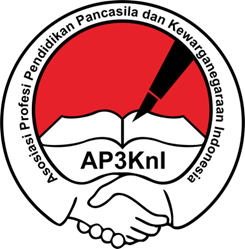Marketing Politics: Political Participation of Beginner Voters In Electing The President of 2019
DOI: https://doi.org/10.26618/jed.v5i1.3033
Marketing Politik, Partisipasi Politik, Pendidikan Politik, Pemilih Pemula, Pemilihan Presiden
Abstract
. Political marketing in the 2019 presidential election is one of the main factors of Indonesian democracy. The brand personality of the 2019 presidential candidates became an important point in the victory of the 2019 presidential election. The millennial generation is part of the target of novice voters. Previous research has carried out mapping and analysis of political marketing in the 2014 presidential election, 2014 legislative elections, and the 2015 regional elections where in each election there were differences in emphasis in political marketing. The purpose of this study is to analyze the uniqueness of political marketing in the 2019 presidential election compared to previous political marketing. This research approach uses quantitative research with descriptive methods with statistical descriptive data analysis. The population of this research is novice voters in West Java. The sampling technique used was random sampling with a total sample of 100 respondents. The results of this study indicate that 100% of beginner voters use digital media to find out presidential candidates and 80% to add to their basic political knowledge. However, the presidential election decision based on the media only reached 57.6%.
Keywords: Political Marketing, Political Participation, Political Education, Beginner Voters, Presidential Elections
Marketing politik dalam pemilihan Presiden Tahun 2019 menjadi salah faktor utama demokrasi Indonesia. Brand personality dari kandidat calon presiden 2019 menjadi poin penting dalam kemenangan pemilihan presiden 2019. Generasi milenial adalah bagian dari target pemilih pemula. Penelitian sebelumnya telah dilakukan pemetaan dan analisis marketing politik pada pemilihan presiden 2014, pemilihan legislatif 2014, dan pemilihan kepala daerah 2015 di mana dari setiap pemilihan terjadi perbedaan penekanan dalam marketing politik. Tujuan penelitian ini adalah menganalisis keunikan marketing politik pemilihan presiden tahun 2019 dibanding marketing politik sebelumnya. Pendekatan penelitian ini menggunakan penelitian kuantitatif dengan metode deskriptif dengan analisis data deskriptif statistik. Populasi penelitian ini adalah pemilih pemula di Jawa Barat. Teknik sampling yang digunakan adalah random sampling dengan total sampel 100 responden. Hasil penelitian ini menunjukkan bahwa 100% pemilih pemula menggunakan media digital untuk mengetahui calon presiden dan 80% untuk menambah pengetahuan dasar politik. Namun, keputusan pemilihan presiden berdasarkan media hanya mencapai 57.6%.
Kata Kunci: Marketing Politik, Partisipasi Politik, Pendidikan Politik, Pemilih Pemula, Pemilihan Presiden
References
Amirullah dan Budiono, Harris. (2013). Pengantar Manajemen. Edisi Ketiga Penerbit Graha Ilmu.
Fukuyama, Francis., (2001) Sosial Capital; Civil Society and Development, Third World Quarterly, Vol 22.
Henn, Matt, Mark Weinstein, and Dominic Wring. (2002). “A Generation Apart? Youth and Political Participation in Britain.” British Journal of Politics and International Relations, Vol. 4(2):167– 92 12.
Henn, Matt, Mark Weinstein, and Dominic Wring. (2005). “Uninterested Youth? Young People’s Attitudestowards Party Politics in Britain.” Political Studies, Vol. 53: 556– 57 (2005).
M. Rusli Karim. (1991). Pemilu Demokratis Kompetitif. Yogyakarta: PT Tiara Wacana Yogya.
Machfiroh, Runik. (2018). Pendidikan Kewarganegaraan di Era Digital. Disertasi PKn UPI tidak diterbitkan
Norris, Pippa. (2003). ‘Young People and Political Activism: From the Politics of Loyalties to the Politics ofChoice?’, Paper presented to the Council of Europe Symposium, Young People and Democratic Institutions: From Disillusionment to Participation, Strasbourg, 27 – 28 November.
Sanders, Luk. (2013)"Keyakinan Aneh dari Alexis de Tocqueville: Kristen sebagai Filsafat". International Journal of Philosophy and Theology , 74: 1 (2013): 33–53. (2013),
Suhartono. (2009). Tingkat kesadaran Politik Pemilih Pemula dalam Pilkada; suatu Refleksi School-Based democracy Education (Studi Kasus Pilkada Provinsi Banten Jawa Barat). UPI. Bandung
Sutanyo, AMA dan Machfiroh R. (2016), Political Marketing Activity In Simultaneous Regional Elections 2015. Jurnal MIMBAR Jurnal Sosial dan Pembangunan 33 (1), 99-106
Tapscott. (2010). The Politics of Youthful Antipolitics: Representing the ‘Issue’ of Youth Participation in Politics, Journal of Youth Studies, Vol. 13 (2): 181-195 (2010)
UU nomor 7 tahun 2017 tentang Pemilu pasal 1 ayat 34 https://news.idntimes.com/indonesia/linda/pilkada-2018-10-juta-pemilih-pemula-terancam-tak-bisa-memilih-1/full diunduh tanggal 4 Januari 2019.



